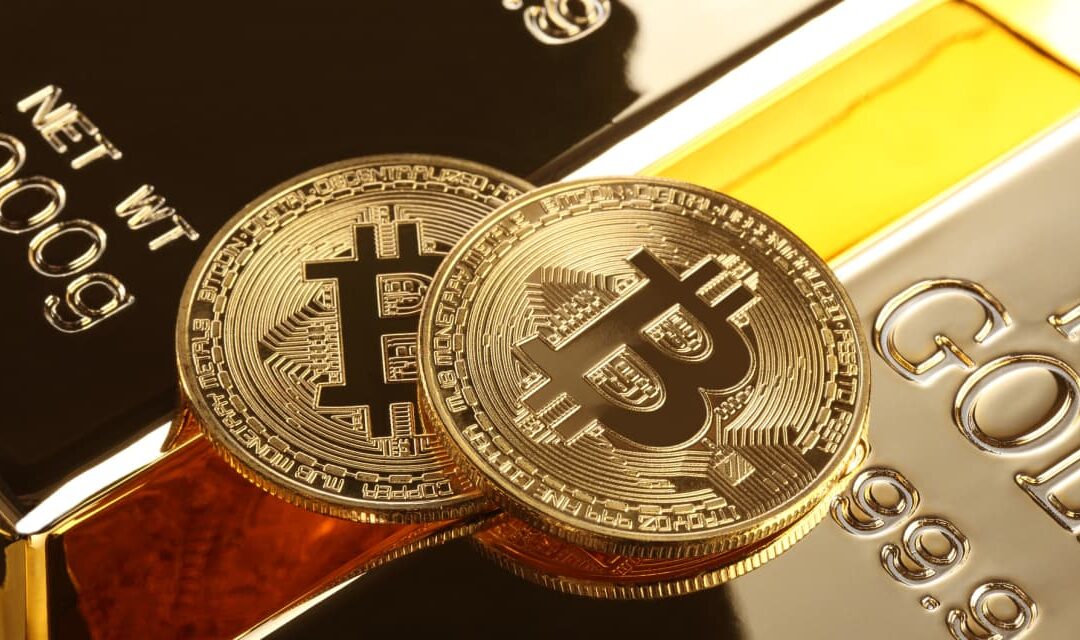Gold has historically been an investor’s best friend when it comes to a store of value, but a certain digital currency is looking to elbow its way into the haven-asset mix with this week’s launch of spot bitcoin exchange-traded funds.
“The relevance of gold
GC00,
GCG24,
and gold ETFs has already been threatened by bitcoin
BTCUSD,
” said Alex Pickard, vice president of research at investment firm Research Affiliates. “The emergence of bitcoin ETFs threatens the market for gold as an investment further.”
The U.S. Securities and Exchange Commission on Wednesday approved the launch of 11 bitcoin exchange-traded funds, some of which began trading Thursday.
Read: Bitcoin ETFs finally approved after a chaotic, ‘embarrassing’ 24 hours for SEC
“History will remember” Jan. 10 and 11 — the day the spot bitcoin ETFs were approved and the day they started trading, said Yemu Xu, co-founder of crypto tokens and blockchain platforms ARPA and Bella Protocol. “Those dates mark the beginning of the digital era.”
Trading volume is already high
As of Jan. 11, pension funds, endowment funds, the general public and others could “freely and legally buy, hold and trade bitcoin and bitcoin-related assets with an affordable transaction cost,” said Xu, who is a former analyst for Fidelity.
The bitcoin ETFs are a sign that a new asset class is “emerging into the public’s investable category in a compliant way, just like what gold did about 20 years ago,” he told MarketWatch.
However, it will probably take much less time for their trading volume to reach where gold ETFs are today, Xu said, as high volatility in bitcoin ETFs are likely to “attract speculative capital, which will bring active trading activities.”
On Thursday, the trading volume for the world’s largest gold-backed ETF, SPDR Gold Shares
GLD,
was 6.83 million, with the value of those shares at $1.28 billion, according to Dow Jones Market Data. That same day, over $4.6 billion worth of shares traded among the 11 spot bitcoin ETFs.
Read: What history says about first-of-a-kind ETFs as bitcoin products debut
The SPDR Gold Shares ETF returned over 300% from its introduction in 2004 to 2011, said Pickard, as it gave investors access to a previously difficult-to-access investment.
He believes the next five to 10 years will be the “era of mainstream bitcoin investment” and said he expects bitcoin ETFs to outperform SPDR Gold Shares’ post-launch return.
Gold’s relevance
Still, Pickard, who is a former bitcoin miner, said that “given its historical relevance over millennia and its use in industrial applications and jewelry,” there will always be a market for gold, and that gold and bitcoin can be complementary investments under the right conditions.
Also read: Gold futures score their biggest daily gain since mid-December
And read: Gold’s moves show ‘Fed policy trumps geopolitics’ in the futures market
As an investment, bitcoin “‘digital gold’ has shaken up, and will continue to shake up, the thesis for investing in physical gold,” Pickard said, but “bitcoin would not have caught on in the way it has if there was no merit to owning it over gold.”
“‘Bitcoin would not have caught on in the way it has if there was no merit to owning it over gold.’”
Bitcoin and gold have “vastly different volatilities,” but they both “play in the same ‘store of value’ investment arena,” Pickard said. “The marketers for gold ETFs and the marketers for bitcoin ETFs are going after the same investor dollars.”
That said, he believes the two assets can be “complementary” in a diversified portfolio because they have “very different volatilities.” Volatility is defined by Investopedia as how much and how quickly prices move over a given span of time.
CK Zheng, founder of crypto hedge fund ZX Squared Capital, pointed out that while gold prices have climbed less than 30% since the start of the COVID-19 pandemic, bitcoin prices have risen by more than 350%.
“During this period of historical massive money printing and high inflation in the U.S., the traditional thesis of gold as a store of value has diminished substantially, as people view bitcoin as a better way to hedge the global money printings,” he said.
He said that while gold and bitcoin will coexist for the foreseeable future, their “prospective investment bases will be very different.”
Gold investors “appreciate gold from its historical perspective, with a few thousand years of global trade history,” said Zheng, who is former global head of risk for Credit Suisse. Bitcoin investors, meanwhile, are “more forward-looking and view bitcoin as a disruptive technology which will shake up traditional finance in the digital age.”
It will take time for mainstream investors to embrace bitcoin, he said, adding that the adoption time for new technology is typically lengthy.
“‘As bitcoin is the best-performing asset class since its inception, it will definitely take away some investment interest from gold.’”
The approval of spot bitcoin ETFs will definitely “make the adoption process easier, as mainstream investors can use the familiar investment vehicles to diversify their risks,” Zheng said.
Over the long term, however, “performances speak louder than words,” he said. “As bitcoin is the best-performing asset class since its inception, it will definitely take away some investment interest from gold.”









